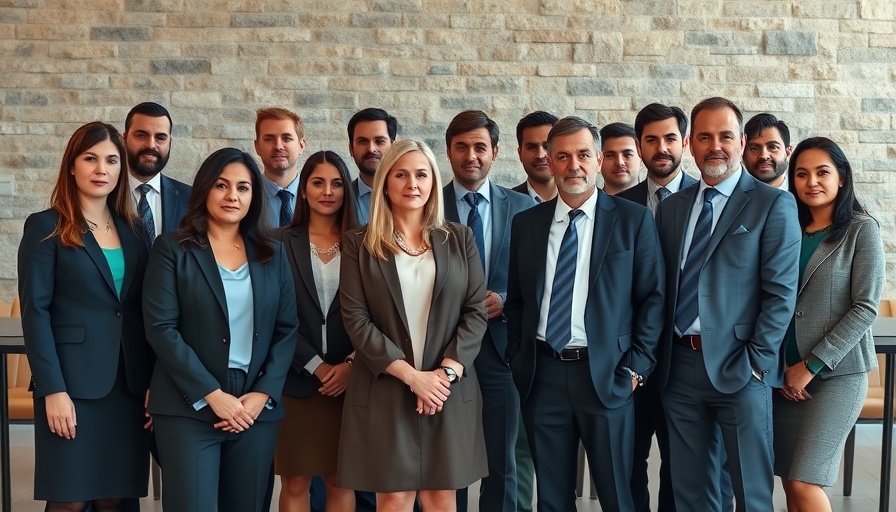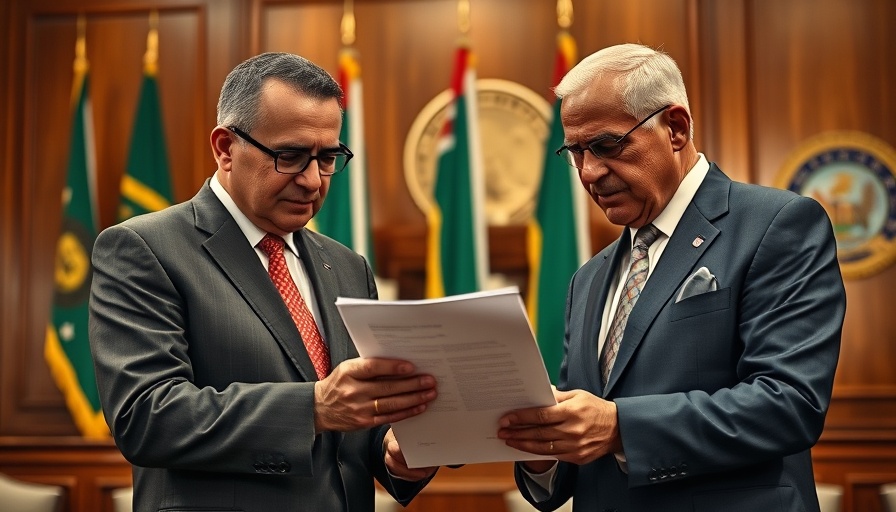
Understanding Migration Challenges in North Africa
The trilateral talks between the leaders of Turkey, Italy, and the Libyan government highlight profound migration challenges stemming from the socio-political climate in Libya. Since the fall of Muammar Gaddafi in 2011, Libya has experienced a complex fragmentation, with multiple governments vying for control. This has caused severe instability, resulting in increased migration flows as both Libyans and sub-Saharan Africans seek refuge in Europe. Experts suggest that addressing the root causes of migration—such as instability and lack of economic opportunities—is vital for curbing the exodus of migrants risking treacherous journeys across the Mediterranean Sea.
In the video, Turkey, Italy, and Libya hold trilateral talks on migration and security, the leaders discuss pressing issues surrounding migration, which allows for a nuanced analysis of the geopolitical landscape.
Political Stability's Role in Migration Management
The discussions led by Turkish President Recep Tayyip Erdoğan, Italian Prime Minister Giorgia Meloni, and Libyan Prime Minister Abdul Hamid Dbeibah are essential for fostering political stability in a nation that has been marred by civil strife. A stabilized Libya could serve as a bulwark against irregular migration into Europe. The effective management of its borders is critical not only for protecting European interests but for ensuring the safety and rights of migrants. The trilateral agreement seeks to enhance border security while fostering key diplomatic discussions regarding the establishment of a cohesive political framework in Libya.
The Dynamics of European Migration Policy
This summit also symbolizes a shift in European migration policy, which involves a blend of humanitarian efforts and stringent border control measures. With Italy taking a frontline role, European nations are increasingly recognizing that they must collaborate with North African countries to develop sustainable migration policies. The need for international cooperation becomes apparent as all parties strive to mitigate the costs associated with irregular migration—an issue that not only strains public resources but also poses humanitarian challenges.
Implications for European Security
The trilateral talks emphasize the intricate interplay between migration and security in Europe, particularly regarding how instability in Libya can lead to broader security threats. Incidents of trafficking and organized crime originating from Libya’s chaotic conditions are of significant concern. Thus, the security ramifications extend beyond European borders, necessitating a comprehensive approach to enhance regional and international security efforts.
Future Predictions: What to Watch For
As Western nations shift their strategies in response to 21st-century migration trends, what can be expected in the coming years? The trilateral talks will likely lead to more negotiations aimed at building a stronger governance framework in Libya. Additionally, watchers of African politics will need to observe how these developments affect regional dynamics, particularly concerning cooperation with other North African and sub-Saharan nations facing similar challenges. Furthermore, the success—or failure—of these talks may influence Italy and Turkey’s domestic policies regarding immigration, leading to potentially significant ramifications across Europe.
Encouraging Local Solutions to Global Issues
There is an increasing recognition of the need for localized solutions to the migration crises. This involves leveraging local governance to implement reforms that address the root causes of migration, emphasizing economic development and social cohesion. As leaders in North Africa look to introspectively evaluate their geopolitical strategies, the trilateral talks serve as a stepping stone towards fostering regional cooperation and innovative solutions to cope with migration.
The Role of International Organizations
International organizations, notably the United Nations and the African Union, must play an active role in mediating discussions like the trilateral talks. Their involvement can provide essential oversight and frameworks to ensure that migration policies remain humanitarian-focused and respect human rights. These organizations can also assist in mediating disputes between rival governments in Libya and enhancing the overall governance structure.
The outcome of the talks held as detailed in the video, Turkey, Italy, and Libya hold trilateral talks on migration and security, is pivotal for understanding how these nations seek to stabilize Libya while managing the ongoing migration flows into Europe.
 Add Row
Add Row  Add
Add 




Write A Comment